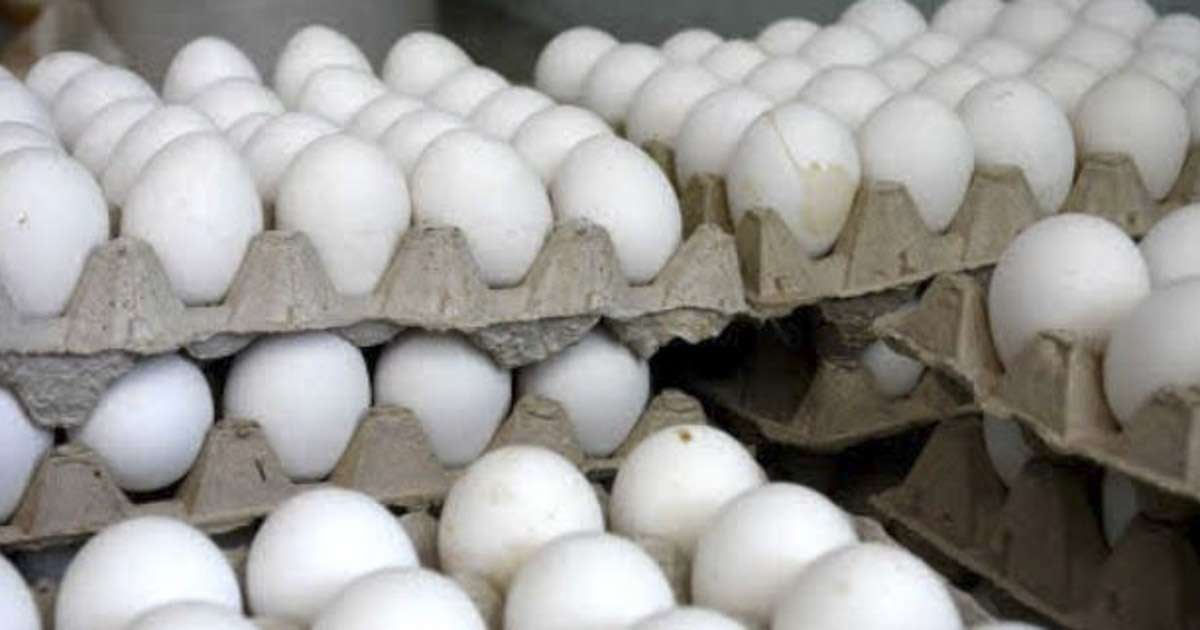In a notable exchange between Caribbean nations, the Dominican Republic supplies Cuba with an average of 16.5 million eggs each month, as reported by Dominican authorities. The Dominican government has significantly increased its exports of eggs and other agricultural products to various Caribbean islands and other countries. In January, they exported 37 million eggs to Cuba, Puerto Rico, and Guyana, according to Agriculture Minister Limber Cruz during a press conference.
The Dominican official emphasized that these exports are made possible by surplus production, after meeting domestic needs. Between June 2023 and August 2024, Cuba imported eggs valued at $6,726,483 from the Dominican Republic.
Cuba also sources eggs from countries like Colombia and the United States. In fact, eggs from the U.S. are available in state-owned stores and through micro, small, and medium-sized enterprises (MSMEs). Online stores also offer U.S. eggs for sale in Cuba, despite the regime's claims that the U.S. embargo restricts the purchase of basic foodstuffs.
In recent years, the Cuban government has struggled to produce enough eggs to meet the population's demand amid a severe economic crisis, which has led to a drastic decline in protein production overall. The Cuban authorities blame the agricultural sector's collapse on a lack of resources, fuel shortages, and adverse weather conditions. However, these challenges do not seem to impact the nearby Dominican Republic, despite its geographical proximity to Cuba.
The Cuban government attributes the plummeting egg production to a shortage of feed and insufficient funding to acquire raw materials. In October, Agriculture Minister Ydael Pérez Brito disclosed that daily egg production had fallen from four to five million to just 1,200,000, contingent on the ability to feed the livestock. Pérez Brito noted that four years ago, the nation's poultry program accounted for 8,000,000 hens, including layers, breeders, and replacements. By last year, this number had dwindled to 3,000,000. "We have decreased by 5,000,000 hens in four years," he acknowledged.
As a historically crucial component of the Cuban diet becomes scarce, the price of a carton of eggs has soared to astronomical levels on the informal market, far exceeding the minimum wage or pension. In 2024, Cubans reported the exorbitant cost of a "file" of hen's eggs reaching 5,000 pesos on the black market— a price unattainable for low-wage workers or retirees with minimal pensions.
Amid the food crisis, mid-last year, it was revealed that the Holguín Poultry Company (Avihol) had culled at least 54,000 laying hens due to a lack of feed. Months later, outrage erupted among Cubans over the burning of a container full of eggs at a warehouse in Consolación del Sur, Pinar del Río. While the eggs were reportedly spoiled due to poor storage conditions or another reason, there was no official statement regarding the alarming incident.
Understanding Cuba's Dependence on Egg Imports
Why does Cuba import so many eggs from the Dominican Republic?
Cuba imports eggs from the Dominican Republic due to its inability to produce enough to meet domestic demands, a situation exacerbated by economic difficulties and a decline in overall protein production.
What are the main challenges facing Cuba's egg production?
Cuba's egg production is hindered by shortages of feed, lack of funding for raw materials, fuel shortages, and other economic constraints, leading to a significant reduction in the poultry population.
How has the egg shortage affected prices in Cuba?
The shortage has caused egg prices to skyrocket on the informal market, reaching levels unaffordable for many Cubans, especially those on low wages or pensions.
